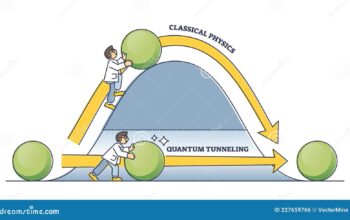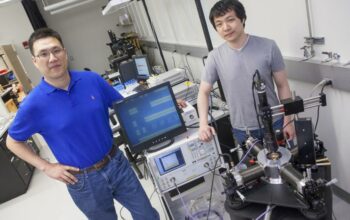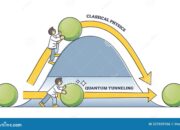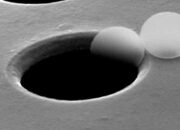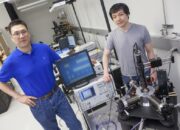Engaging in research within the realm of physics is an endeavor that encompasses a broad spectrum of experiences, challenges, and rewards. It attracts those with a relentless curiosity and a passion for understanding the fundamental principles that govern our universe. In this exploration, we will delve into the multifaceted nature of physics research, examining the various domains it encompasses, the methodologies employed, the collaborative dynamics paramount in the field, and the intellectual satisfaction that emerges from enigmatic discoveries.
Physics research can be broadly classified into several categories, which include theoretical physics, experimental physics, applied physics, and interdisciplinary approaches that bridge physics with other scientific domains. Each type offers a unique perspective and set of methodologies. Theoretical physicists grapple with complex mathematical frameworks and abstract concepts, striving to unravel the underlying principles of nature. Their work often culminates in theories that, while elegant, may take years—or even decades—to be substantiated through experimental validation.
Conversely, experimental physicists focus on the empirical side of the discipline. They design and conduct experiments to test hypotheses derived from theoretical predictions. This realm is rich with technical challenges, requiring an in-depth understanding of both the apparatus used and the scientific principles governing the experiment. The interactions between theory and experiment are vital; one informs the other, and the resulting synergy pushes the boundaries of our comprehension. New tools and technologies, such as particle accelerators and cryogenic sensors, open up frontiers yet to be explored, presenting researchers with exhilarating possibilities.
Applied physics, another significant branch, seeks to harness the principles of physics for practical applications. Researchers in this domain work on technological innovations, ranging from the development of semiconductors to advancements in renewable energy solutions. The applied physicist’s perspective is decidedly utilitarian, yet it often necessitates a robust theoretical underpinning to guide experimental endeavors. This interdisciplinary approach fosters collaboration with engineers, chemists, and even biologists, leading to solutions that not only advance scientific knowledge but also enhance the quality of life.
The advent of interdisciplinary research has birthed new fields, such as biophysics and medical physics, which manifest the integrative nature of contemporary scientific inquiry. Biophysicists explore biological processes through the lens of physical laws, employing techniques such as spectroscopy or microscopy to observe phenomena at molecular or cellular levels. Medical physicists, on the other hand, apply their expertise to healthcare, ensuring the safe and effective use of radiation in diagnostics and treatment. This convergence of disciplines is indicative of a shift towards holistic approaches, where the boundaries between physics and other sciences blur to foster innovative research paradigms.
A pivotal aspect of research in physics is the collaborative environment that characterizes it. Most significant breakthroughs emerge from collective efforts rather than solitary endeavors. Researchers frequently form teams, bringing together diverse expertise and perspectives to tackle complex problems. This collaboration often transcends institutional and geographical barriers, facilitated by conferences, workshops, and online platforms that enable the global exchange of ideas. Engaging with peers, mentors, and students cultivates an academic community conducive to intellectual growth and innovation.
The research process itself is marked by a cycle of hypothesis, experimentation, data collection, and analysis. In the realm of physics, this process is further complicated by the precision required in measurement and the potential for systemic errors. Rigorous statistical methods are employed to interpret data, demanding a meticulous approach to validation. As physicists cycle through these stages, the potential for serendipitous discovery exists, leading to unexpected phenomena that may challenge existing theoretical frameworks. This unpredictable nature of research is often one of the most exhilarating aspects for those involved.
Moreover, the sustenance of research endeavors often hinges upon funding and resource allocation. Competition for grants and research funding can be intense, with physicists required to articulate the significance of their research compellingly. They must not only highlight the scientific merit but also convey the potential societal impact. This additional layer of complexity necessitates strong communication skills, both in writing and in oral presentations, to engage with funding bodies and to advocate for the importance of their pursuits.
The intellectual rewards of conducting research in physics are multifaceted and profound. The thrill of arriving at a novel insight, the satisfaction of solving a complex problem, and the joy of contributing to the broader scientific community are irreplaceable motivations. For many, the journey itself—a continuous cycle of learning, exploration, and discovery—becomes an essential part of their identity. The passion for unraveling the mysteries of the universe and contributing to our shared understanding generates a lifelong commitment that extends beyond individual achievements.
However, the path of physics research is not without its obstacles. Setbacks are inevitable; experiments may fail, grants may be denied, and theories may be disproven. The resilience required to navigate these challenges is a defining quality of successful researchers. Engaging with the discomfort of failure cultivates adaptability and fosters an environment where critical inquiry thrives. It is through this perseverance that the most significant advancements in physics often arise, propelled by a commitment to inquiry that withstands adversity.
In conclusion, the landscape of physics research is both vibrant and diverse, underpinned by a commitment to curiosity and inquiry. The interplay between theory and experiment, the collaborative spirit, and the intellectual rewards all contribute to the allure of this field. For those enamored with the mysteries of the universe, the journey of research in physics not only offers profound insights but also cultivates a community that resonates with enthusiasm and dedication. As physics continues to evolve, so too will the opportunities for exploration, inviting new generations of researchers to partake in this ever-expanding quest for knowledge.



